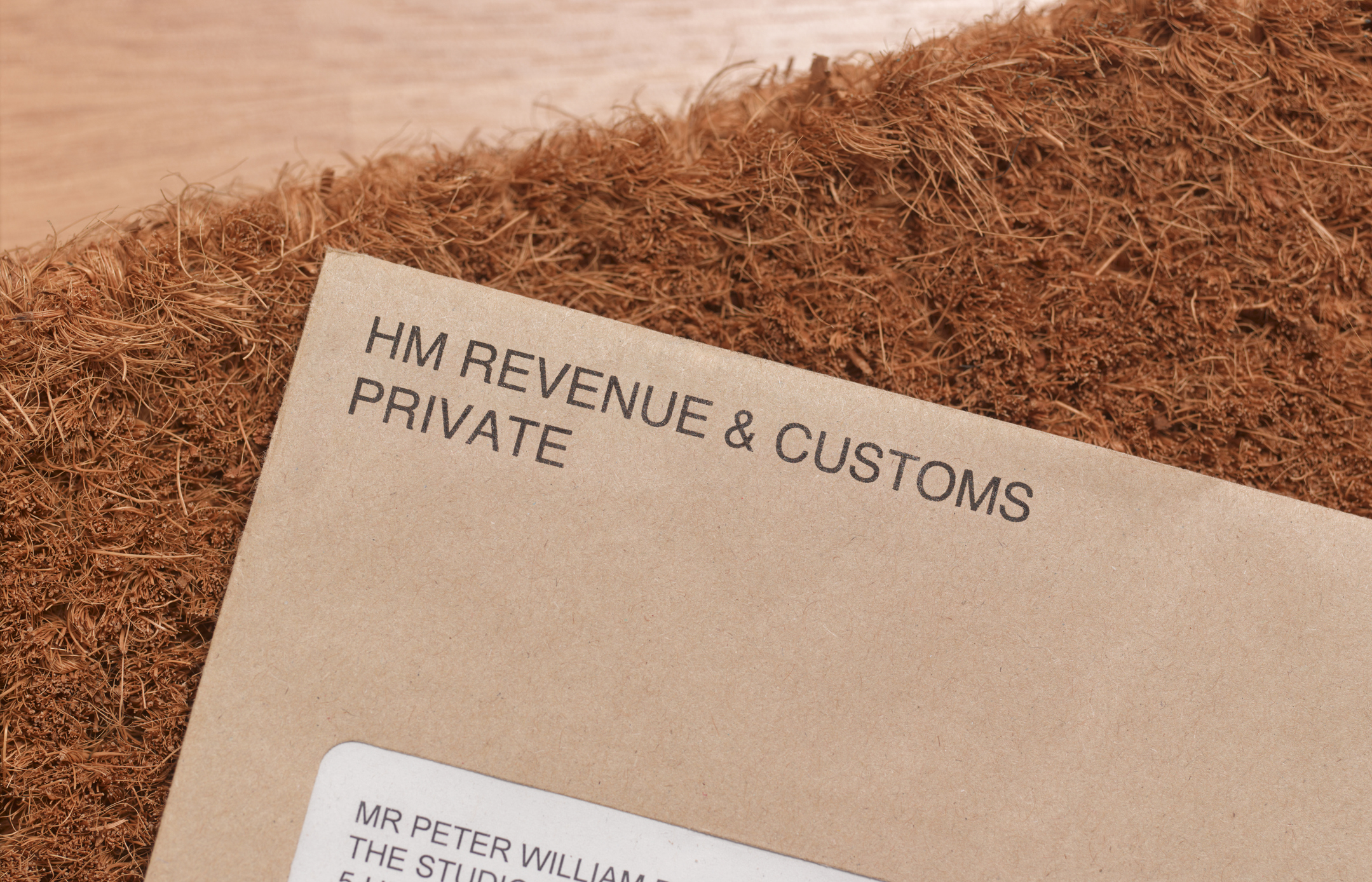HMRC opens 1,000 more inheritance tax probes – what to do if it happens to you
Enquiries into inheritance tax owed have jumped by over a third in just one year, but there has been in a decrease in the proportion of investigations leading to higher bills


Get the latest financial news, insights and expert analysis from our award-winning MoneyWeek team, to help you understand what really matters when it comes to your finances.
You are now subscribed
Your newsletter sign-up was successful
Want to add more newsletters?

Twice daily
MoneyWeek
Get the latest financial news, insights and expert analysis from our award-winning MoneyWeek team, to help you understand what really matters when it comes to your finances.

Four times a week
Look After My Bills
Sign up to our free money-saving newsletter, filled with the latest news and expert advice to help you find the best tips and deals for managing your bills. Start saving today!
HMRC issued a third more enquiries about inheritance tax last year in a bid to crack down on evasion, according to new data, but most cases were closed with no further action required.
There were 4,171 inheritance tax (IHT) enquiries in 2024/25, up from 3,028 in 2023/24, figures obtained from HMRC by accountancy firm Price Bailey found – an increase of 38%.
An IHT enquiry is typically sent out when HMRC identifies potential discrepancies or risks in an estate's tax reporting, such as an undervaluation of assets, or a large gift being made prior to death.
MoneyWeek
Subscribe to MoneyWeek today and get your first six magazine issues absolutely FREE

Sign up to Money Morning
Don't miss the latest investment and personal finances news, market analysis, plus money-saving tips with our free twice-daily newsletter
Don't miss the latest investment and personal finances news, market analysis, plus money-saving tips with our free twice-daily newsletter
The main purpose is to determine whether more inheritance tax is owed.
But despite a surge in enquiries, fewer led to amendments of an inheritance tax bill. Just 45% of probes led to higher bills last year versus 65% in 2023/24.
Nikita Cooper, director at Price Bailey, said: “HMRC is coming under increasing pressure to clampdown on non-compliance and boost the tax take as the government seeks to balance fiscal responsibility with economic growth.
“After the lull in activity in recent years, HMRC is now ramping up scrutiny of returns and this upward trend is expected to continue as more estates are caught in the inheritance tax net.”
HMRC pointed out amendments can be the result of enquiries opened in a previous year so it is not a clear cut comparison between one year and the next.
However, Price Bailey claimed the declining proportion of formal enquiries resulting in amendments to tax returns suggested many of the new staff recruited into HMRC’s Customer Compliance unit in recent years could be struggling to get to grips with the complexities of IHT.
The number of customer compliance staff has increased by 17 percent since 2018/19, from 23,342 to 27,226 in 2023/24.
Cooper added: “HMRC is becoming less discriminate in the inheritance tax returns it is enquiring into as it casts its net wider. This is unfair on the taxpayers who are coping with bereavement and doing the right thing by making full and accurate disclosures.”
According to HMRC, factors behind IHT enquiry cases can vary widely, ranging from straightforward mistakes through to evasion.
It added the number of cases open will fluctuate each year depending on the number of risks identified, and the number of enquiries it’s opening is now similar to pre-pandemic levels.
HMRC pointed out there is an appeal process for those who do not agree with the outcome of any compliance activity.
An HMRC spokesperson said: “The vast majority of people pay the correct inheritance tax. Investigations are only opened into cases where there’s evidence the right amount of tax has not been paid.”
What to do if you get an inheritance tax enquiry from HMRC
HMRC has the power to investigate IHT submissions to make sure any reliefs have been properly applied and the right amount of tax paid.
Investigations – also called enquiries or compliance checks – can be random or triggered by discrepancies in the figures reported, the complexity of the estate, or large gifts made before death.
Unlike most other taxes, IHT tax returns need to be sent to HMRC on paper for manual processing by agents.
Cooper said: “The IHT reporting system is very archaic, with paper forms being processed manually.
“The system is so backward that HMRC can’t even tell us how much tax was collected from these enquiries. In an increasing number of cases, the answer is almost certainly nothing.”
If you find yourself receiving an inheritance tax enquiry from HMRC, Price Bailey recommends taking the following steps:
1) Determine the reason for the enquiry
HMRC typically investigates estates where discrepancies arise in asset valuations, large gifts before death, or complex financial arrangements. Reviewing the enquiry notice carefully will help determine the specific concerns.
2) Gather documentation
Collect all relevant financial records, including property valuations, bank statements, trust documents, and any records of gifts made within the last seven years.
3) Seek professional advice
Consult a tax specialist. They can help interpret HMRC’s requests, provide guidance on compliance, and negotiate on behalf of the estate if necessary.
4) Respond promptly and transparently
HMRC may request additional information or explanations. Providing clear, well-organized responses within the given timeframe can prevent further scrutiny or penalties.
5) Consider making a voluntary disclosure
If errors or omissions are identified in the estate’s tax filings, voluntarily disclosing them to HMRC can reduce penalties and demonstrate good faith.
6) Monitor deadlines and payment obligations
If additional tax liabilities arise from the enquiry, ensure timely payment to avoid interest charges. HMRC allows instalment payments for certain assets, such as property.
In terms of avoiding enquiries, Price Bailey suggested ensuring accurate valuations, documenting gifts carefully, using trusts carefully, avoiding aggressive tax planning and seeking professional advice.
With the thresholds at which estates are eligible to pay IHT being frozen and not accounting for rising property prices and inflation, the number of individuals needing to file IHT returns is likely to increase.
Additionally, the looming IHT changes for farmers and business owners, with the restriction of business property relief and agricultural property relief, as well as pensions being brought within the scope of IHT from 6 April 2027, will significantly increase the amount of IHT being collected by HMRC.
Cooper said: “We are likely to see much greater emphasis on compliance as the number of estates eligible for inheritance tax and the amount collected rises sharply in the coming years.
“The current paper-based filing system is already buckling under the strain and HMRC will need to get much better at sifting out inaccurate returns from those who are doing the right thing.”
Get the latest financial news, insights and expert analysis from our award-winning MoneyWeek team, to help you understand what really matters when it comes to your finances.
Laura Miller is an experienced financial and business journalist. Formerly on staff at the Daily Telegraph, her freelance work now appears in the money pages of all the national newspapers. She endeavours to make money issues easy to understand for everyone, and to do justice to the people who regularly trust her to tell their stories. She lives by the sea in Aberystwyth. You can find her tweeting @thatlaurawrites
-
 Should you buy an active ETF?
Should you buy an active ETF?ETFs are often mischaracterised as passive products, but they can be a convenient way to add active management to your portfolio
-
 Power up your pension before 5 April – easy ways to save before the tax year end
Power up your pension before 5 April – easy ways to save before the tax year endWith the end of the tax year looming, pension savers currently have a window to review and maximise what’s going into their retirement funds – we look at how
-
 Pension inheritance tax paperwork nightmare – how to prepare to avoid penalties
Pension inheritance tax paperwork nightmare – how to prepare to avoid penaltiesPensions will be included in inheritance tax calculations from April 2027 and in a shock move, your executors will have to shoulder the burden of finding all your unused pots
-
 Little-known way inheritance tax pension raid could put thousands of businesses at risk – ‘issue is flying under the radar’
Little-known way inheritance tax pension raid could put thousands of businesses at risk – ‘issue is flying under the radar’Changes to inheritance tax rules could wipe out 15,000 businesses where owners put their premises in their pension, experts have warned
-
 Will chancellor Rachel Reeves reverse non-dom inheritance tax changes?
Will chancellor Rachel Reeves reverse non-dom inheritance tax changes?The end of the non-dom tax regime is already causing a UK wealth exodus, data suggests, but chancellor Rachel Reeves may make changes to soften the blow of reforms
-
 Family left with £20k IHT bill because of out-of-date tax advice
Family left with £20k IHT bill because of out-of-date tax adviceFrozen tax thresholds and dated guidance helped drag the estate into an inheritance tax liability despite extensive use of gifting to avoid a bill
-
 Family faces £1 million inheritance tax bill over widespread issue with holiday lets
Family faces £1 million inheritance tax bill over widespread issue with holiday letsMany bereaved families with furnished holiday lets are unable to claim business property relief and have to pay inheritance tax, lawyers say.
-
 Nine ways to reduce your inheritance tax bill
Nine ways to reduce your inheritance tax billThe government has collected a record amount of inheritance tax in recent years – but these steps could help you cut your bill
